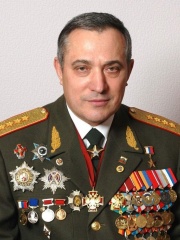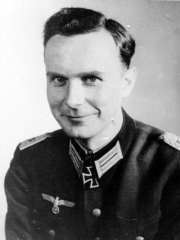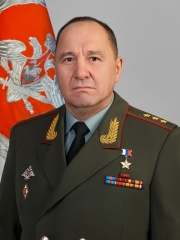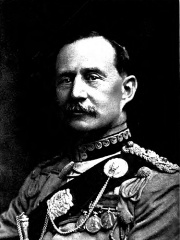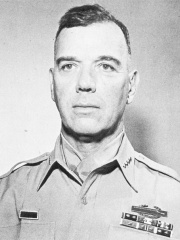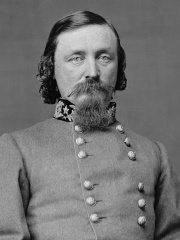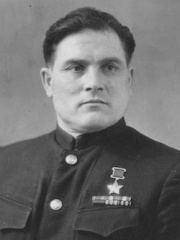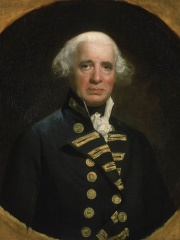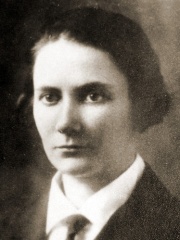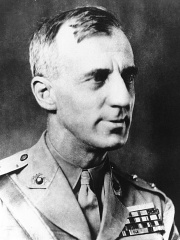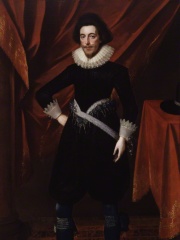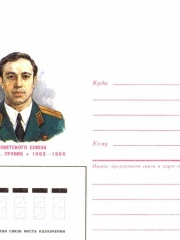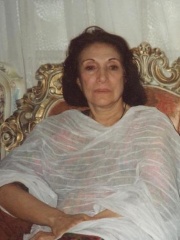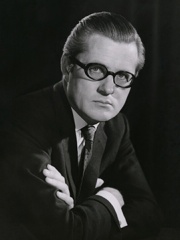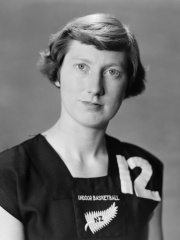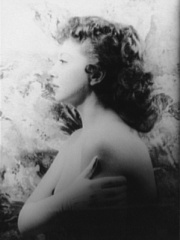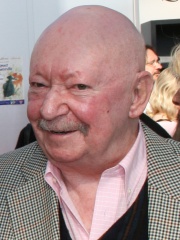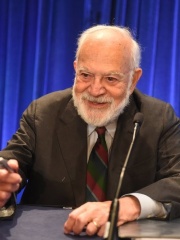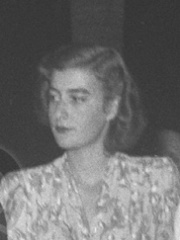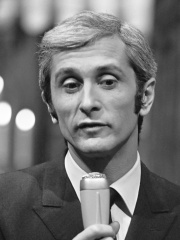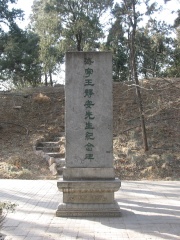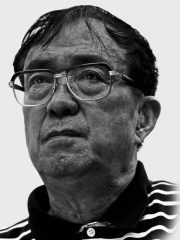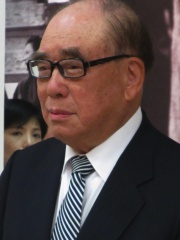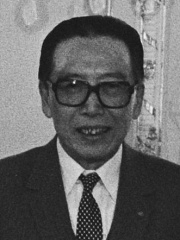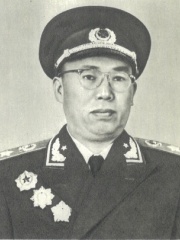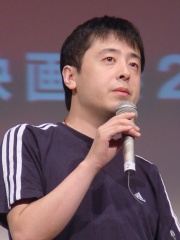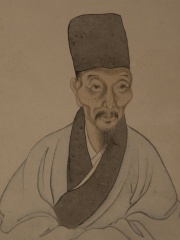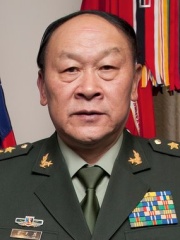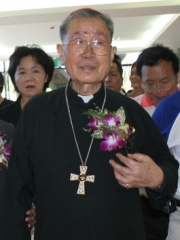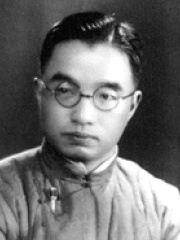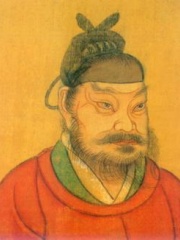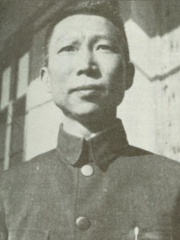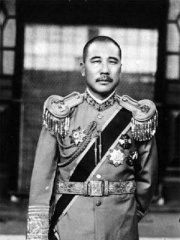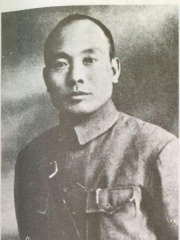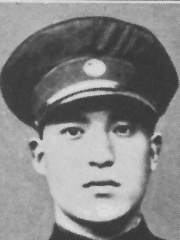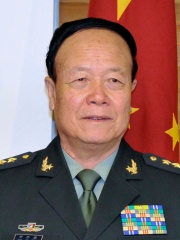Military Personnel
Chi Haotian
1929 - today
EN.WIKIPEDIA PAGE VIEWS (PV)
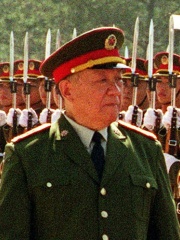
 Chi Haotian
Chi Haotian
Chi Haotian (simplified Chinese: 迟浩田; traditional Chinese: 遲浩田; pinyin: Chí Hàotián; born 9 July 1929), also spelled as Chih Hao-tien, is a retired general of the Chinese People's Liberation Army. He served as Minister of National Defense from 1993 to 2003. Read more on Wikipedia
His biography is available in 15 different languages on Wikipedia. Chi Haotian is the 1,782nd most popular military personnel (down from 1,697th in 2024), the 887th most popular biography from China (down from 865th in 2019) and the 62nd most popular Chinese Military Personnel.
Memorability Metrics
Page views of Chi Haotian by language
Among Military Personnels
Among military personnels, Chi Haotian ranks 1,782 out of 2,058. Before him are Anatoly Kvashnin, Axel von dem Bussche, Gennady Zhidko, Lionel Dunsterville, James Van Fleet, and George Pickett. After him are Mikhail Devyataev, Richard Howe, 1st Earl Howe, Maria Wittek, Smedley Butler, Robert Devereux, 3rd Earl of Essex, and Volodymyr Pravyk.
Most Popular Military Personnels in Wikipedia
Go to all RankingsAnatoly Kvashnin
1946 - 2022
HPI: 56.23
Rank: 1,776
Axel von dem Bussche
1919 - 1993
HPI: 56.22
Rank: 1,777
Gennady Zhidko
1965 - 2023
HPI: 56.21
Rank: 1,778
Lionel Dunsterville
1865 - 1946
HPI: 56.16
Rank: 1,779
James Van Fleet
1892 - 1992
HPI: 56.15
Rank: 1,780
George Pickett
1825 - 1875
HPI: 56.15
Rank: 1,781
Chi Haotian
1929 - Present
HPI: 56.13
Rank: 1,782
Mikhail Devyataev
1917 - 2002
HPI: 56.12
Rank: 1,783
Richard Howe, 1st Earl Howe
1726 - 1799
HPI: 56.10
Rank: 1,784
Maria Wittek
1899 - 1997
HPI: 56.08
Rank: 1,785
Smedley Butler
1881 - 1940
HPI: 56.07
Rank: 1,786
Robert Devereux, 3rd Earl of Essex
1591 - 1646
HPI: 56.07
Rank: 1,787
Volodymyr Pravyk
1962 - 1986
HPI: 56.06
Rank: 1,788
Contemporaries
Among people born in 1929, Chi Haotian ranks 364. Before him are Bazilio Olara-Okello, Nusrat Bhutto, Larry Collins, John Julius Norwich, Tommy Banks, and Yvette Williams. After him are Beverly Sills, Günter Kunert, Harry Frankfurt, Lady Pamela Hicks, Marcel Amont, and Kenneth MacMillan.
Others Born in 1929
Go to all RankingsBazilio Olara-Okello
MILITARY PERSONNEL
1929 - 1990
HPI: 56.29
Rank: 358
Nusrat Bhutto
POLITICIAN
1929 - 2011
HPI: 56.25
Rank: 359
Larry Collins
WRITER
1929 - 2005
HPI: 56.21
Rank: 360
John Julius Norwich
POLITICIAN
1929 - 2018
HPI: 56.20
Rank: 361
Tommy Banks
SOCCER PLAYER
1929 - 2024
HPI: 56.18
Rank: 362
Yvette Williams
ATHLETE
1929 - 2019
HPI: 56.14
Rank: 363
Chi Haotian
MILITARY PERSONNEL
1929 - Present
HPI: 56.13
Rank: 364
Beverly Sills
SINGER
1929 - 2007
HPI: 56.08
Rank: 365
Günter Kunert
WRITER
1929 - 2019
HPI: 56.06
Rank: 366
Harry Frankfurt
PHILOSOPHER
1929 - 2023
HPI: 56.03
Rank: 367
Lady Pamela Hicks
NOBLEMAN
1929 - Present
HPI: 56.00
Rank: 368
Marcel Amont
SINGER
1929 - 2023
HPI: 55.99
Rank: 369
Kenneth MacMillan
DANCER
1929 - 1992
HPI: 55.96
Rank: 370
In China
Among people born in China, Chi Haotian ranks 887 out of NaN. Before him are Wang Guowei (1877), Xie Jin (1923), Hau Pei-tsun (1919), Wu Xueqian (1921), Luo Ronghuan (1902), and Jia Zhangke (1970). After him are Qiu Ying (1494), Liang Guanglie (1940), An Wang (1920), Paul Shan Kuo-hsi (1924), Zhu Ziqing (1898), and Tang Wei (1979).
Others born in China
Go to all RankingsWang Guowei
WRITER
1877 - 1927
HPI: 56.35
Rank: 881
Xie Jin
FILM DIRECTOR
1923 - 2008
HPI: 56.32
Rank: 882
Hau Pei-tsun
POLITICIAN
1919 - 2020
HPI: 56.27
Rank: 883
Wu Xueqian
POLITICIAN
1921 - 2008
HPI: 56.24
Rank: 884
Luo Ronghuan
POLITICIAN
1902 - 1963
HPI: 56.23
Rank: 885
Jia Zhangke
FILM DIRECTOR
1970 - Present
HPI: 56.15
Rank: 886
Chi Haotian
MILITARY PERSONNEL
1929 - Present
HPI: 56.13
Rank: 887
Qiu Ying
PAINTER
1494 - 1552
HPI: 56.12
Rank: 888
Liang Guanglie
POLITICIAN
1940 - 2024
HPI: 56.09
Rank: 889
An Wang
INVENTOR
1920 - 1990
HPI: 56.08
Rank: 890
Paul Shan Kuo-hsi
RELIGIOUS FIGURE
1924 - 2012
HPI: 56.07
Rank: 891
Zhu Ziqing
WRITER
1898 - 1948
HPI: 56.05
Rank: 892
Tang Wei
ACTOR
1979 - Present
HPI: 55.98
Rank: 893
Among Military Personnels In China
Among military personnels born in China, Chi Haotian ranks 62. Before him are Shi Jingtang (892), Xue Yue (1896), Zhang Zongchang (1881), Tang Enbo (1898), Ma Zhongying (1910), and Guo Boxiong (1942). After him are Dong Jun (null), and Yu Xu (1986).
Shi Jingtang
892 - 942
HPI: 59.00
Rank: 56
Xue Yue
1896 - 1998
HPI: 58.30
Rank: 57
Zhang Zongchang
1881 - 1932
HPI: 57.97
Rank: 58
Tang Enbo
1898 - 1954
HPI: 57.30
Rank: 59
Ma Zhongying
1910 - 1936
HPI: 57.26
Rank: 60
Guo Boxiong
1942 - Present
HPI: 56.48
Rank: 61
Chi Haotian
1929 - Present
HPI: 56.13
Rank: 62
Dong Jun
HPI: 55.33
Rank: 63
Yu Xu
1986 - 2016
HPI: 36.73
Rank: 64
